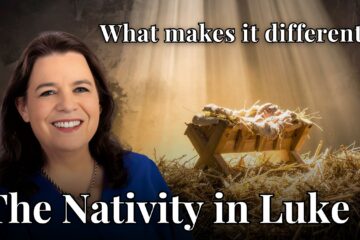Answers to questions surrounding the Christian faith. Email us yours at: info@myocn.net
Question: So does free will affect my faith? Absolutely!
Answer:
I grew up in a context in which the notion of libertarian freedom (freedom of the will) was routinely undermined. I can still remember sitting in our family pew listening to our pastor preach a sermon on predestination. I no longer recall the exact words; I do, however, remember the essence of his message.
It was the dictum of John Calvin. That “by predestination we mean the eternal decree of God, by which he determined with himself whatever he wished to happen with regard to every man. All are not created on equal terms, but some are preordained to eternal life, others to eternal damnation; and, accordingly, as each has been created for one or other of these ends, we say that he has been predestinated to life or to death.”
The dogma of fatalistic predeterminism so unnerved me that at an early age I walked away from the faith and for all practical purposes embraced philosophical materialism. In time, however, I began to realize that I had merely traded in one form of determinism for another. For, as the song goes, if Madonna is merely a material girl living in a material world, her choices are not free—they are fatalistically determined by her brain chemistry and genetics.
Thankfully, in time I came to embrace the patristic tradition, which refutes the notion that I have been predestined ahead of time to this or that fate. Saint John of Damascus said it well, “We have it in our power either to abide in virtue and follow God, who calls us into ways of virtue, or to stray from paths of virtue, which is to dwell in wickedness, and to follow the devil who summons but cannot compel us.”
So does free will affect my faith? Absolutely! And in at least three dramatic ways. To begin with, it affects our view of God. Suppose a terrorist strapped a bomb to the body of a child, placed the child in the middle of an orphanage, and blew up a thousand children along with a hundred mission workers. Who would be the author of that horrific terrorist attack? The terrorist or the child? The answer should be obvious. Similarly, if, as Calvin opined, “God not only foresaw the fall of the first man, and in him the ruin of his posterity but also at his own pleasure arranged it,” God might rightly be said to be the author of evil; and if God is the author of evil, it is theologically tricky to distinguish God from evil itself.
Furthermore, free will, or the deprivation thereof, affects faith in the reality of love. Patristic tradition acknowledges that God created the potential for evil in that God created us with the freedom to choose. Human beings, however, actualized evil through their choices. God is neither a cosmic terrorist who forces his love on humanity, nor a cosmic puppeteer who forces humanity to love Him. Rather, God, the personification of love, grants us freedom of choice. Without such freedom, love would be rendered meaningless. “It is not God’s will that there should be wickedness, nor does he choose to compel virtue,” said Saint John of Damascus. Rather, “we have it in our power either to abide in virtue and follow God, who calls us into ways of virtue, or to stray from paths of virtue, which is to dwell in wickedness, and to follow the devil who summons but cannot compel us. For wickedness is nothing else than the withdrawal of goodness, just as darkness is nothing else than the withdrawal of light.”
Finally, the reality of free will trains the focus of our faith on the felicities of eternity. While at present we are bombarded by the temptations of the world, the flesh, and the devil, in eternity the problem of sin and Satan is forever resolved. In heaven we will be actualized in righteousness, free to be what God designed us to be. Far from robbing us of freedom, such actualization is the quintessence of freedom. We freely give up the freedom to sin in exchange for freedom from sin. In His infinite wisdom, the Holy Spirit inspired the human authors of Scripture to illustrate the unwaveringly faithful relationship between the Lord Jesus and His Church by way of the analogy of marriage. Jesus is the Church’s singularly sinless and freely faithful Bridegroom. Likewise, in heaven the Church will be His “holy and blameless” bride. A bride freed forever from enslavement to sin. Free to enjoy paradise restored.
So, how does free will affect your faith? It provides a proper perspective on the goodness of God; heightens our perception of God as the personification of love; and provides a proper perspective on the promise of an eternity in which we will be free to be what God designed us to be.



0 Comments